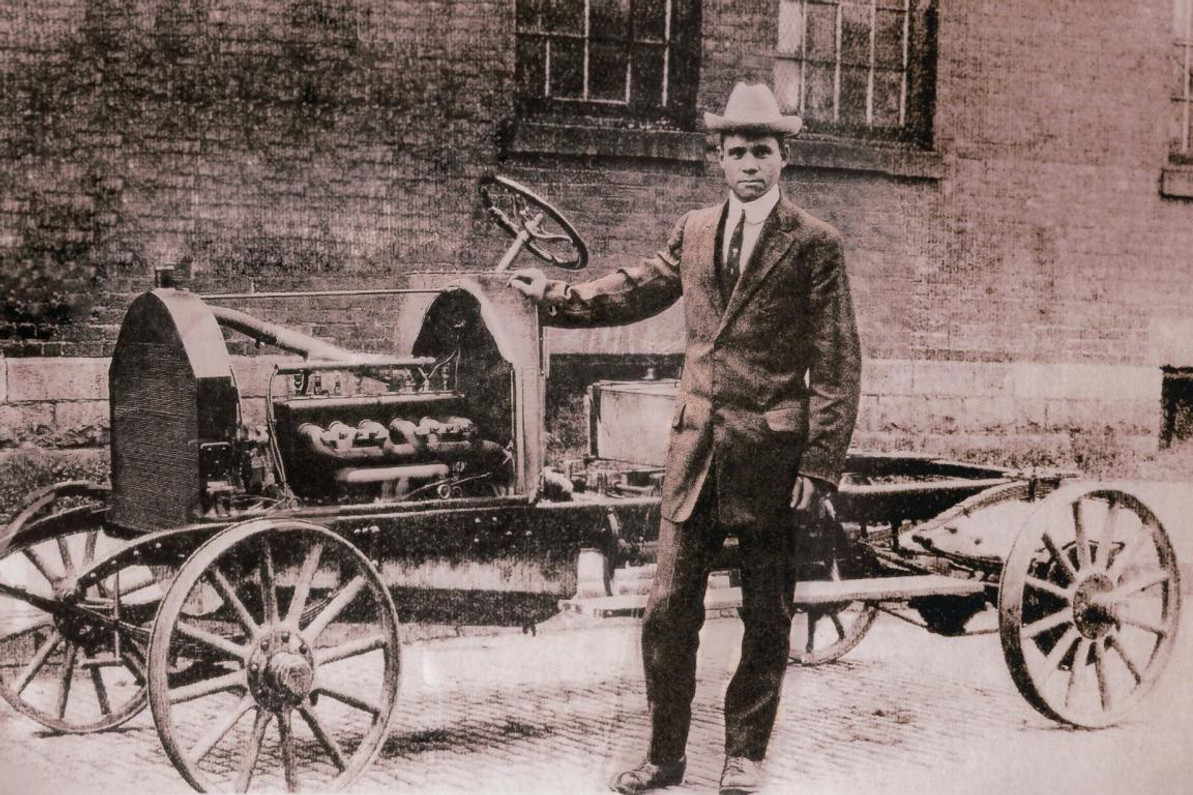Forging Legacies: Black History in Manufacturing
Contributions of Black individuals have woven a rich and resilient narrative that extends across various fields and industries. While often overlooked, the realm of manufacturing stands as a testament to the indomitable spirit and ingenuity of Black pioneers who have left an indelible mark on the development and progress of this critical sector. From the earliest days of industrialization to the present, the stories of Black inventors, entrepreneurs, and laborers in manufacturing reveal a tapestry of resilience, innovation, and perseverance. This article aims to shed light on the remarkable but often underrepresented history of Black individuals in manufacturing, celebrating their achievements, highlighting their challenges, and recognizing the profound impact they have had on shaping the industrial landscape of the United States. As we explore the narratives of unsung heroes and trailblazers, we delve into a history that not only deserves recognition but also serves as a source of inspiration for generations to come.
Gerald "Jerry" Anderson Lawson
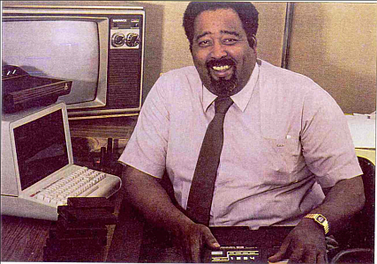
Gerald Anderson Lawson, fondly known as "Jerry," emerged as a pivotal figure in the realm of manufacturing, leaving an indelible mark on the gaming industry. Hailing from Queens, New York, Lawson's journey began in his teen years as an enthusiastic tinkerer, where he crafted his own radio station from electronic components and honed his skills by repairing televisions for financial support. Opting to forgo college before completing his degree, Lawson found himself in 1970 as an applications engineering consultant at Fairchild Semiconductor in San Francisco. Simultaneously, within the confines of his garage, he embarked on a groundbreaking venture – the invention of "Destruction Derby," a coin-operated game that would become one of the pioneers in the realm of microprocessor games. While making strides in his personal projects, Lawson played a pivotal role at Fairchild, spearheading a team tasked with developing the Fairchild Channel F console. This console marked a significant milestone as the first-ever cartridge-based game system, surpassing Atari's initial foray into the gaming console arena. The story of Jerry Lawson intertwines with the broader narrative of Black excellence in manufacturing, showcasing his innovative spirit and lasting impact on the technological landscape.
C.R. Patterson & Sons
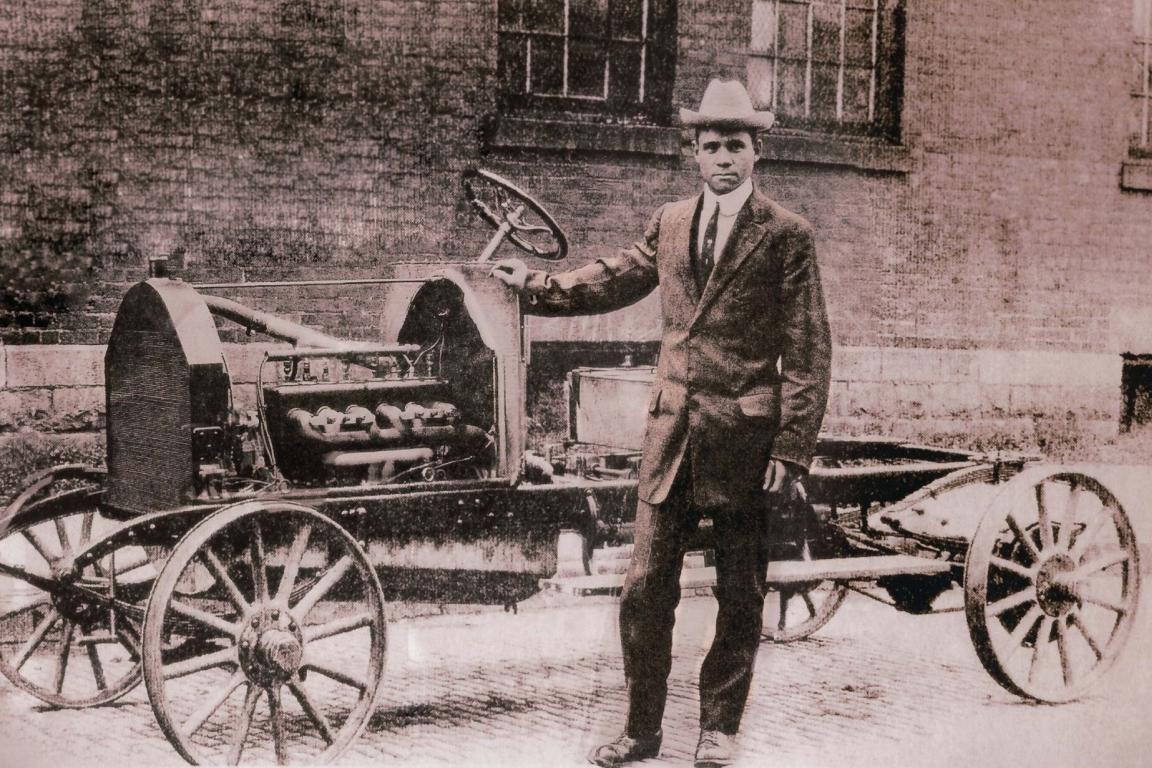
Photo: Historical Society of Greenfield Ohio
In the annals of manufacturing history, the story of C.R. Patterson & Sons stands as a singular and remarkable testament to Black ingenuity and entrepreneurial spirit. Acknowledged by the Smithsonian Museum of African-American History and Culture as not only the first but the only black-owned automaker, the legacy of this pioneering family unfolds against a backdrop of resilience and achievement. Charles Patterson, born into slavery, transitioned to the abolitionist enclave of Greenfield, Ohio, where he leveraged his blacksmithing skills to establish a thriving carriage-making enterprise. The reins of this enterprise were later taken up by his son, Frederick Patterson, a trailblazing athlete who became the first black football player at Ohio State University. Around 1910, in a visionary move, Frederick steered the company towards the burgeoning world of horseless carriages, marking the beginning of a groundbreaking chapter. The Patterson-Greenfield, their first automobile, gained renown for its quality, commanding a price tag of $685. The family expanded their automotive portfolio with the introduction of a coupe and a "Red Devil" speedster, solidifying their presence in the industry. The Pattersons further diversified into bus manufacturing in 1920, but the challenges of scaling up, compounded by the economic downturn of the Great Depression, ultimately led to the conclusion of their industrious venture. The story of C.R. Patterson & Sons unfolds as a vital part of the broader narrative of Black achievement in manufacturing, showcasing their lasting impact on the automotive landscape.
George Washington Carver
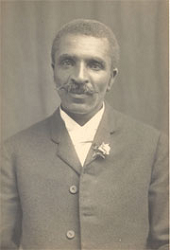
Dr. George Washington Carver emerges as a luminary figure whose innovative contributions transcend traditional boundaries. As an agricultural scientist at Tuskegee University, Carver revolutionized farming practices by introducing the now-standard method of crop rotation, enriching Southern soils and fostering sustainable agriculture. Beyond his pioneering work in agriculture, Carver's fascination with the peanut led to groundbreaking developments in the manufacturing sector. His efforts popularized peanut farming throughout the South and yielded a diverse array of products, ranging from alternative fuels and beauty creams to mock meats—predecessors to the plant-based foods prevalent in today's market. Carver's ingenuity extended into the realms of cleaners and medications, showcasing his unparalleled ability to harness the potential of agricultural resources for multifaceted applications.
Frederick McKinley Jones
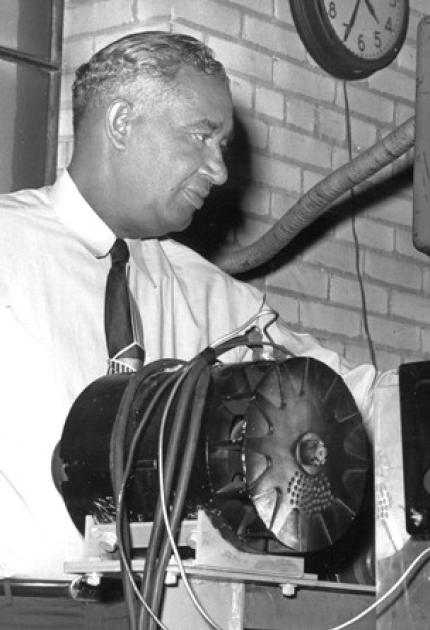
Frederick Jones emerges as a pivotal figure in Black manufacturing with his ingenuity that reshaped the way we experience fresh produce, even in the harshest of climates. As we relish the convenience of enjoying tomatoes in Maine winters, we owe gratitude to Jones for his groundbreaking invention of mobile refrigeration in 1938. Prior to Jones' innovation, the transportation of perishable goods relied on the less reliable method of using ice and salt, a process susceptible to spoilage during transit by car, truck, ship, or plane.
Notably recognized as the first Black recipient of the National Medal of Technology, Jones co-founded Thermo King Corp., a company dedicated to manufacturing his compact cooling compressor. The impact of his invention reverberated through the industry, with Thermo King Corp. achieving remarkable success, boasting over $1 billion in annual sales by the time of its acquisition by Ingersoll-Rand Co. in 1997. Frederick Jones' legacy stands as a testament to the transformative power of innovation in manufacturing, forever altering the way we preserve and transport perishable goods on a global scale.
Sarah Breedlove (Madame C.J. Walker)
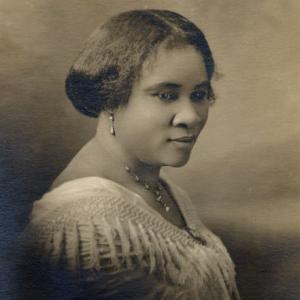
Photo: Smithsonian Institution
The narrative of Sarah Breedlove, renowned as Madame C.J. Walker, shines as a beacon of entrepreneurship and empowerment. Widely acknowledged as potentially the first self-made woman millionaire in the United States, Walker's journey began amidst poverty in Louisiana, where she toiled as a laundress and housecleaner. Following her divorce, a pivotal chapter unfolded as she immersed herself in the beauty products industry, initially as a saleswoman for an established company. In 1904, Walker boldly embarked on her entrepreneurial path, introducing her own line of beauty products. Relocating to Denver after remarriage, Walker's new husband, with expertise in advertising, played a vital role in amplifying the sales and promotion of her burgeoning enterprise. The trajectory of success led them to Indianapolis, where Walker established the Walker Manufacturing Company factory. With a commitment to empowerment, she employed over 40,000 women as sales agents, contributing significantly to the economic upliftment of the Black community. Walker's philanthropic endeavors extended beyond her business, as she generously donated a substantial portion of her wealth to advance Black causes, supporting institutions like the Tuskegee Institute and the NAACP. Madame C.J. Walker's legacy stands not only as a testament to her entrepreneurial prowess but also as a catalyst for positive change and progress within the Black community.
The often-underrecognized history of Black individuals in manufacturing is filled with innovation, resilience, and transformative contributions. From the early days of industrialization to the present, Black pioneers have left an indelible mark on various sectors, shaping the trajectory of American manufacturing. These stories not only deserve recognition but also serve as inspiration for future generations, underscoring the importance of diversity, ingenuity, and perseverance in shaping the industrial landscape of the United States.
Ready to revolutionize your manufacturing processes? Inspired by the stories of Black excellence in manufacturing, take the next step in advancing your industry. Contact Automation Distribution today for cutting-edge solutions tailored to your manufacturing needs. From innovative technologies to streamlined automation, let us empower your business for the future. Join the legacy of pioneers and elevate your manufacturing journey. Reach out now and embark on a path of efficiency, diversity, and groundbreaking success!
Recent Posts
-
Boost Conveyor Performance with Baumer Sensor Solutions
Conveyors are the backbone of warehouse and distribution center efficiency, seamlessly transpor …Apr 9th 2025 -
How Continuous Improvement in Manufacturing Increases Flexibility and Buffers Against Uncertainty
In a volatile global economy, uncertainty is fast becomeing the new normal. Whether it’s …Apr 7th 2025 -
The Ultimate Cable Solution for Food & Beverage Applications
When it comes to food and beverage manufacturing, hygiene and safety are non-negotiable. Every …Apr 3rd 2025

